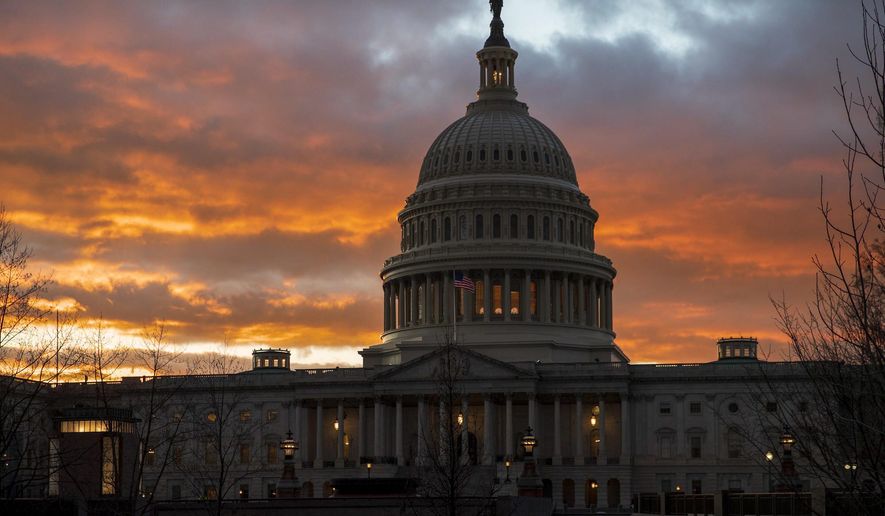NEWS AND OPINION:
The relationship between the public and the nation’s politicians has become complex during the coronavirus pandemic. Close to 50 members of Congress in both House and Senate, in fact, have either tested or been presumed to be positive for exposure to coronavirus according to a new count by National Public Radio.
The public appears to have clear understanding of the stakes here. Two-thirds, in fact, say it’s likely that “more politicians” will contract coronavirus in the future according to an Economist/YouGov poll. An almost equal number — 64% — also are comfortable with the idea that members of Congress should be able to vote on bills and work from offices outside of the U.S. Capitol.
More importantly perhaps, the majority of Americans are not concerned that sickened politicians would prevent the U.S. government from functioning properly. More Republicans believe this than Democrats, by the way.
The pandemic, meanwhile, could present an opportunity for politicians to repair their public images, which continue to erode during the crisis.
Unfortunately, 48% of Americans believe that politicians are most interested in “scoring points against political opponents” during the pandemic. A quarter believe that politicians are concerned about protecting the public from the health effects of the virus, while 26% say lawmakers are interested in shielding people from the economic repercussions. Find more numbers — which include results from Republicans, independents and Democrats — in the Poll du Jour at column’s end.
IN CASE YOU MISSED IT
The coronavirus pandemic has sparked meaningful moments in political discourse. In case you have missed some of this coverage, indefatigable C-SPAN has created a valuable video repository of the federal response to the health crisis.
All sides are represented, including remarks, hearings and press conferences from state-based sources, as well as Congress, White House, and international sources. Find it all at www.c-span.org/coronavirus.
NEVER A DULL MOMENT
People for the Ethical Treatment of Animals — PETA — has long been known for its demonstrations supporting animal rights. These events continue, even in the era of coronavirus.
On Tuesday, the organization now plans a drive-by protest at the National Institutes of Health in the nation’s capital to draw attention to “monkey fright tests” which gauge fear in primates. PETA claims the facility has been conducting such tests for 13 years and has received $36 million in funding.
“The protesters’ cars will also be covered with rubber snakes and spiders,” organizers report.
“While our medical workers go without basic protective equipment, NIH is wasting millions upon millions of dollars scaring mutilated monkeys with rubber snakes,” advises PETA President Ingrid Newkirk.
THE BLAME GAME CONTINUES
Most Democratic voters — 60% — now blame President Trump rather than China for the coronavirus pandemic, according to a Rasmussen Reports survey released Monday.
Among all voters, 42% pointed the finger at the president. But 71% of Republicans and 46% of independents disagreed with this.
The pollster based the question on public commentary from Sen. Chris Murphy. The Connecticut Democrat recently told CNN that China and the World Health Organization were not responsible for the coronavirus crisis, clearly casting blame on Mr. Trump, instead.
The survey also revealed partisan divides about the U.S. response to the pandemic.
“Thirty-two percent of all voters think the U.S. government’s response to the coronavirus has been better than government actions in most other countries. Forty-two percent say it’s worse than others, while 24% view it as about the same,” the poll said.
“Sixty-two percent of Democrats believe the U.S. government’s response has been worse than others. Fifty-six percent of GOP voters think the U.S. response has been better. Among voters not affiliated with either major party, 24% say better, 42% worse, and 32% about the same.”
The survey of 1,000 likely U.S. voters was conducted April 16-19.
RAISING MONEY FOR ’THE SQUAD’
Sen. Bernard Sanders is now raising money for three freshman Democratic congresswomen who are already well-known to the public.
“Our campaign for president was never just about winning the White House. It was about growing a movement that can stand up to the corporate elite of this country and create a government that works for all of us,” Mr. Sanders said in a new public outreach released Monday, seeking donations for Reps. Alexandria Ocasio-Cortez of New York, Ilhan Omar of Minnesota and Rashida Tlaib of Michigan.
The trio was known as “The Squad” in adoring press coverage, which often described them as charismatic, driven progressives.
“If we are serious about building a political revolution — and continuing our fight for economic justice, social justice, racial justice, and environmental justice — we need people like Alexandria, Ilhan and Rashida representing our progressive values in Congress,” said Mr. Sanders, who suggested in the emailed message that fans start with a $5 contribution.
POLL DU JOUR
• 66% of Americans say it’s likely that “more politicians” will contract coronavirus; 62% of Republicans, 62% of independents and 73% of Democrats agree.
• 64% of Americans say members of Congress should be able to vote and work from offices outside the U.S. Capitol; 60% of Republicans, 59% of independents and 75% of Democrats agree.
• 56% are not concerned that sick politicians could prevent the U.S. government from functioning properly; 63% of Republicans, 62% of independents and 46% of Democrats agree.
• 43% are concerned that government operations would be affected; 37% of Republicans, 39% of independents and 53% of Democrats agree.
• 17% overall say it is not likely the politicians will contract the virus; 20% of Republicans, 19% of independents and 13% of Democrats agree.
Source: An Economist/YouGov of 1,500 U.S. adults conducted April 12-14.
• Kindly follow Jennifer Harper on Twitter @HarperBulletin.
• Jennifer Harper can be reached at jharper@washingtontimes.com.




Please read our comment policy before commenting.